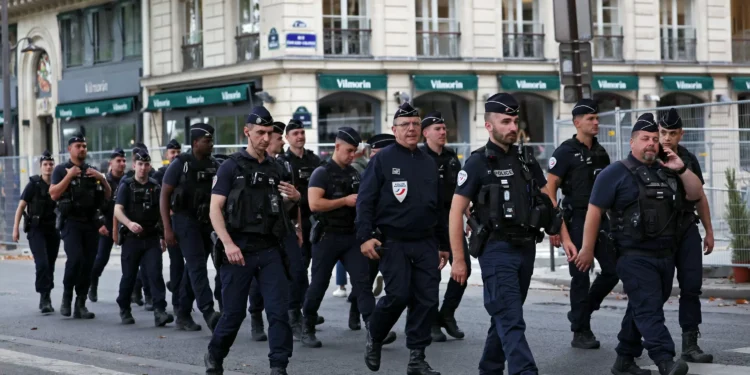The European Union (EU) is a political and economic union of 27 member states located primarily in Europe. It is known for its strong economy, innovative policies, and commitment to unity among its diverse member nations. However, recent survey results have shed light on a concerning issue – the security of the bloc. According to a survey conducted by the European Commission, around 47% of citizens living in EU countries are ‘fairly worried’ about the security of the bloc. This shows that there is a need to address this concern and reassure the citizens of the EU of their safety and well-being.
The survey, which was conducted on behalf of the European Commission, gathered the opinions of citizens from all 27 member states. It revealed that the citizens’ main concerns were terrorism, cyber-attacks, and the rise of right-wing extremism. These concerns are not unfounded, as the EU has faced multiple terrorist attacks in recent years, and cyber-attacks have become increasingly prevalent. Moreover, the rise of right-wing extremism poses a threat to the unity and values of the EU, which are based on democracy, human rights, and the rule of law.
It is understandable that these concerns have sparked worry among citizens. However, it is essential to understand that the EU has various mechanisms in place to ensure the security of its citizens. These include the European Security and Defense Policy, the European Arrest Warrant, and the European Union Agency for Law Enforcement Cooperation (Europol). The EU also has a comprehensive counter-terrorism strategy and a cybersecurity strategy to address the threats posed by terrorism and cyber-attacks. These mechanisms have proven to be effective in maintaining the security of the bloc.
Furthermore, the EU has taken significant steps to combat the rise of right-wing extremism. The European Council has adopted a declaration to combat racism, xenophobia, and other forms of intolerance. The EU also provides funding and support for projects aimed at preventing and countering radicalization and promoting social inclusion. Additionally, the European Commission has launched the European Agenda on Security, which focuses on preventing and fighting terrorism, organized crime, and cybercrime.
The EU also places a strong emphasis on cooperation and solidarity among its member states in matters of security. This is evident in the mutual assistance and mutual defense clause of the Lisbon Treaty, which states that if a member state is the victim of an armed attack, the other member states shall provide aid and assistance. This shows that the EU stands united in the face of security threats and is committed to ensuring the safety of all its citizens.
It is also worth mentioning that the EU has a strong external security policy. The EU actively participates in peacekeeping missions and crisis management operations, and also works closely with international partners to promote global peace and security. This shows that the EU is not only concerned with the security of its citizens but also with the security of the international community.
It is important to note that the EU has been addressing these security concerns proactively. In 2018, the European Commission proposed a new EU budget for 2021-2027, which includes a significant increase in funding for security-related initiatives. This includes strengthening the EU’s external borders, enhancing cybersecurity, and investing in research and development to counter the evolving threats.
Moreover, the EU has also been working towards building a strong and united European defense. The European Defence Fund has been established to support the development of defense capabilities and promote cooperation among member states in the field of defense. This will not only enhance the security of the EU but also reduce its reliance on external defense partners.
In conclusion, it is evident that while there may be concerns about the security of the EU, the bloc has taken significant steps to address these issues and protect its citizens. The EU’s mechanisms and strategies have proven to be effective, and the bloc’s commitment to cooperation and solidarity among member states is a testament to its strength. As we move forward, we must continue to work towards a more secure and united Europe, where citizens can live without fear and in peace. Let us have faith in the EU and its ability to overcome challenges and emerge stronger, together.


